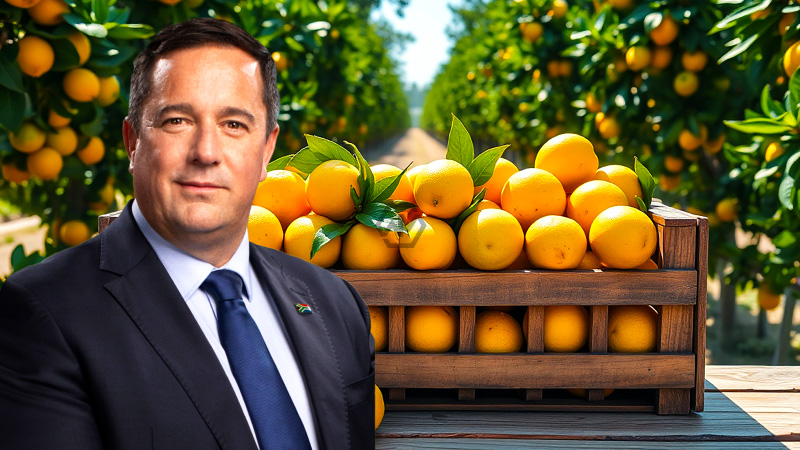- South African Agriculture Minister John Steenhuisen aims to discuss citrus import restrictions with Botswana and Namibia.
- Namibia’s ban lasts from 2021 to 2025, while Botswana’s is from June to August, impacting local agriculture.
- Steenhuisen stresses the need for dialogue to prevent trade tensions and maintain SACU agreements.
Agriculture Minister John Steenhuisen is set to engage with Botswana and Namibia over citrus import restrictions affecting South Africa.
Steenhuisen emphasized the importance of dialogue to resolve these issues amicably, avoiding the need for border closures or trade disputes.
Steenhuisen Proposes Dialogue to Address Citrus Import Ban Disputes
John Steenhuisen, South Africa’s Agriculture Minister, plans to initiate discussions with Botswana and Namibia to address the ongoing citrus import bans. Namibia’s restriction is in place from 2021 to 2025, while Botswana’s is imposed annually from June to August. These bans aim to support local agriculture by limiting foreign competition.
During the Agri Limpopo congress in Modimolle, Steenhuisen advocated for a cooperative approach rather than escalating trade tensions. He underscored the necessity of dialogue to find a resolution that avoids disrupting trade relations and adheres to SACU agreements.
Steenhuisen’s strategy involves negotiating with both countries to reach a compromise that benefits all parties. He expressed confidence that a mutual agreement could be achieved without resorting to measures like border closures, which could have broader economic repercussions.
The focus remains on maintaining open borders and fostering industry cooperation under SACU’s framework, which aims to prevent a trade war scenario. The minister’s approach reflects a commitment to diplomacy and regional collaboration.
Minister Steenhuisen’s efforts highlight a proactive stance in resolving trade issues through dialogue and compromise, aiming to preserve regional economic stability and cooperation.
“Steenhuisen emphasized the importance of dialogue to resolve these issues amicably, avoiding the need for border closures or trade disputes.”



